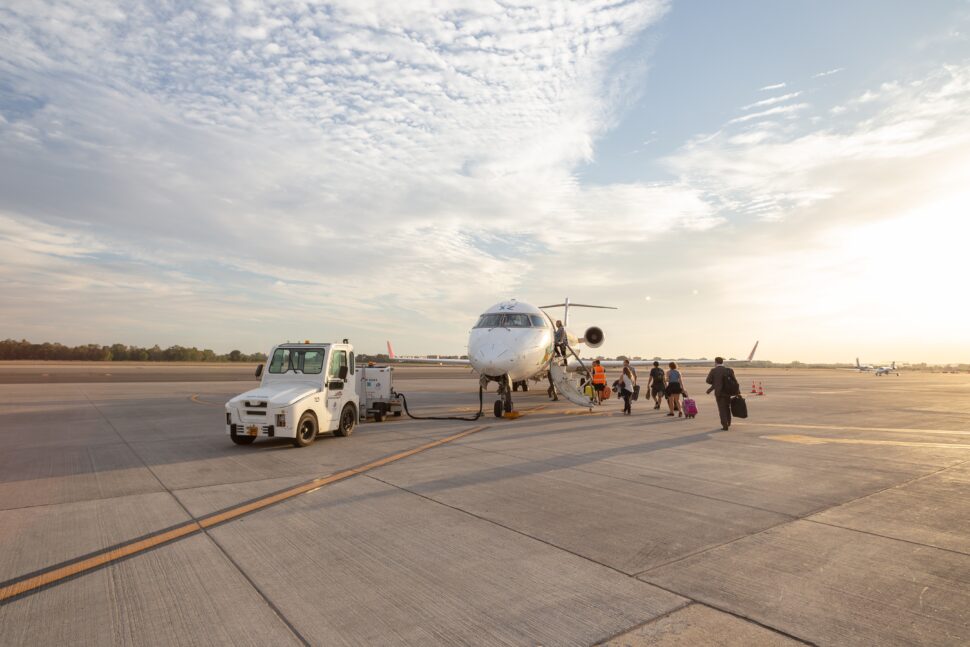With everyone catching flights and not feelings, it can be surprising that many Americans struggle with a fear of flying. According to The Hill, about 40 percent of Americans regularly deal with a fear of flight when traveling.
Although only 5 percent of Americans have severe aviophobia, many travelers still feel frightened when they think about flying. Harvard-trained physician Shairi Turner launched a new initiative to help travelers cope with their fears.
Dr. Turner is the Chief Health Officer at Crisis Text Line, a new phone line that provides mental health resources and support through text message. Carefully crafted by Turner and her team, Crisis Text Line is available in English and Spanish. Anyone can use the text line at any time, including those facing a fear of flying before boarding a plane.
“Traveling is a great experience, Turner said. “It’s an opportunity to connect and being able to have those coping strategies means that you’re still able to have that great experience when you land on the other side and not feel unable to travel by plane because that limits our life experiences when we can’t travel by plane.”
Turner says a fear of flying can come from anywhere. Whether it’s based on their own experiences or someone else’s, aviophobia always has a root cause.

“People have a lot of different reasons why they don’t want to fly,” she said. “One may have had a bad experience in the past. Another one may be they know someone who has been in a plane accident, or there’s a general anxiety around not being in control.”
The text line provides fast, immediate support during mental health crises for travelers. Some symptoms of aviophobia are sweaty palms, headaches, nausea, feeling paralyzed and fainting.
“Being tuned into your body and your body’s response is very important whether it’s related to flying or anything else,” she said. “Anxiety is something that can be managed but we have to have a really clear awareness of the situation.”
Crisis Text Line is another resource travelers can tap into when in times of mental distress. Upon texting the number, a trained volunteer identifies the fear and de-escalates the situation. They also help users find positive coping strategies to deal with anxiety in the future.
“If we know someone has anxiety around traveling, it’s always good to have resources when they need them,” she said.
Crisis Text Line can be reached 24/7 by texting 741741.





